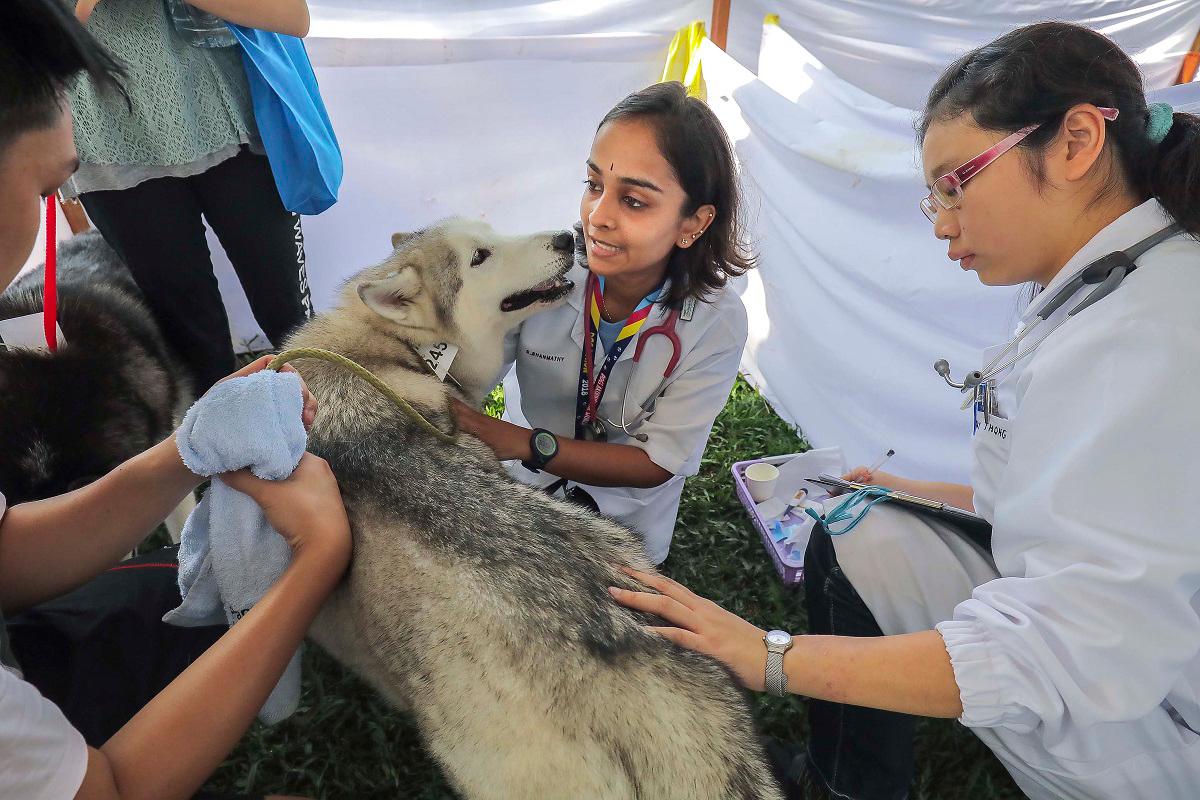PETALING JAYA: The Veterinary Services Department (VSD) is calling on pet owners to microchip their animals, describing it as a vital step in addressing the stray population and protecting domestic pets.
As of May, over 25,800 pets have been microchipped nationwide.
Under Malaysian law, all pets – specifically dogs and cats – must be identified and registered.
VSD confirmed that microchipping remains the standard method, with every registered pet issued an Animal Identification Card under the Animal Passport System.
“Microchipping is more than a safety measure; it’s a sign of responsible ownership,” said VSD veterinary officer Dr Salina Amad Bugis.
“It helps reunite lost pets with their families and supports broader efforts to manage animal welfare in our communities.”
While any registered veterinarian can carry out the procedure, only VSD officers and authorised vets are permitted to issue the official ID card.
The procedure is quick, minimally invasive and carries rare health risks.
To increase accessibility, VSD regularly offers subsidised microchipping programmes during national events such as World Rabies Day, World Veterinary Day and the Malaysia Agriculture, Horticulture and Agrotourism Show as well as state-level initiatives.
In May, Malacca VSD conducted an outreach campaign in Sungai Udang, offering rabies awareness and microchipping services for household pets.
VSD is also working with certified clinics to provide microchipping during regular vet visits, aiming to simplify registration for pet owners.
“Although microchipping alone won’t eliminate the stray issue, it is a key part of a broader strategy involving vaccination, education and animal control,” Salina said.
Globally and locally, microchipping has proven effective in reducing lost pet cases and improving reunification rates.
“As responsible pet owners, it is our duty to ensure the safety, health and well-being of our animals,” she added. “Get your pet microchipped and registered at your nearest VSD office or authorised veterinary clinic. Together, we can build a more compassionate and accountable pet-owning community.”
Meanwhile, an animal welfare advocate warned that gaps in enforcement and registration are limiting the effectiveness of the system.
Malaysian Animal Welfare Association president Mukunnan Sugumaran described microchipping as essential yet underutilised due to a lack of central oversight.
“Microchipping is a simple, safe procedure that costs about RM100 and should be seen as part of responsible pet ownership. But I’ve personally rescued dogs with microchips only to find their data missing from any registry,” he said.
Mukunnan noted that not all shelters or adoption centres microchip the animals they release, which can lead to abandonment cases in which owners deny responsibility.
“Too often, when pets are dumped, there’s no way to trace the owner. The law can’t act if there’s no evidence,” he said, pointing to Section 29(1)(d) of the Animal Welfare Act, which makes abandonment a punishable offence.
To date, no one has been charged under the clause due to the lack of traceable records.
Mukunnan called for a unified national registration system, better enforcement and clearer legal frameworks.
“Microchipping should be mandatory, not optional. Every shelter, rescue group and pet owner has a role to play in proper registration,” he said.
He urged government agencies, local councils and NGOs to collaborate in building
a more structured and enforceable microchipping system.









